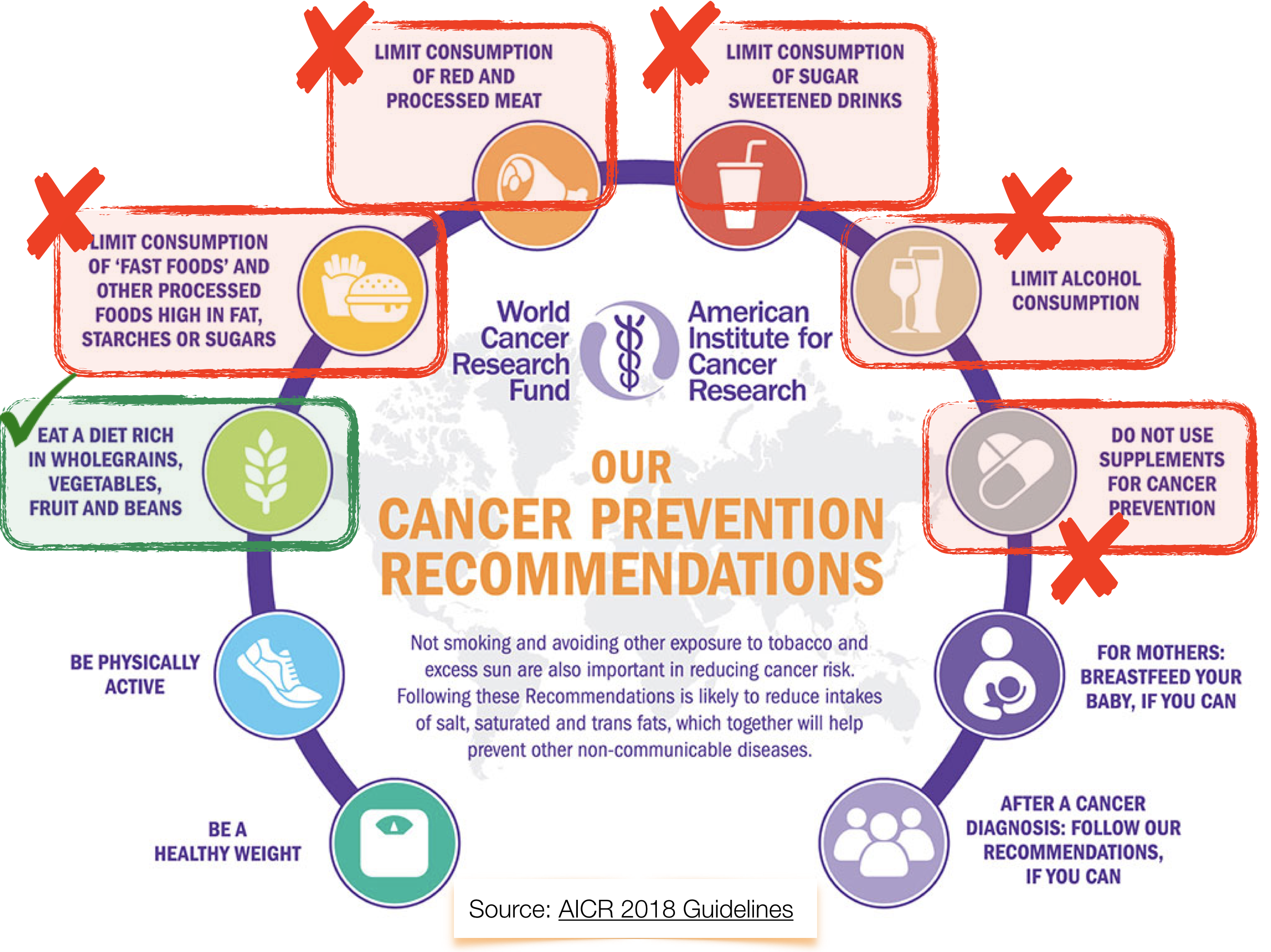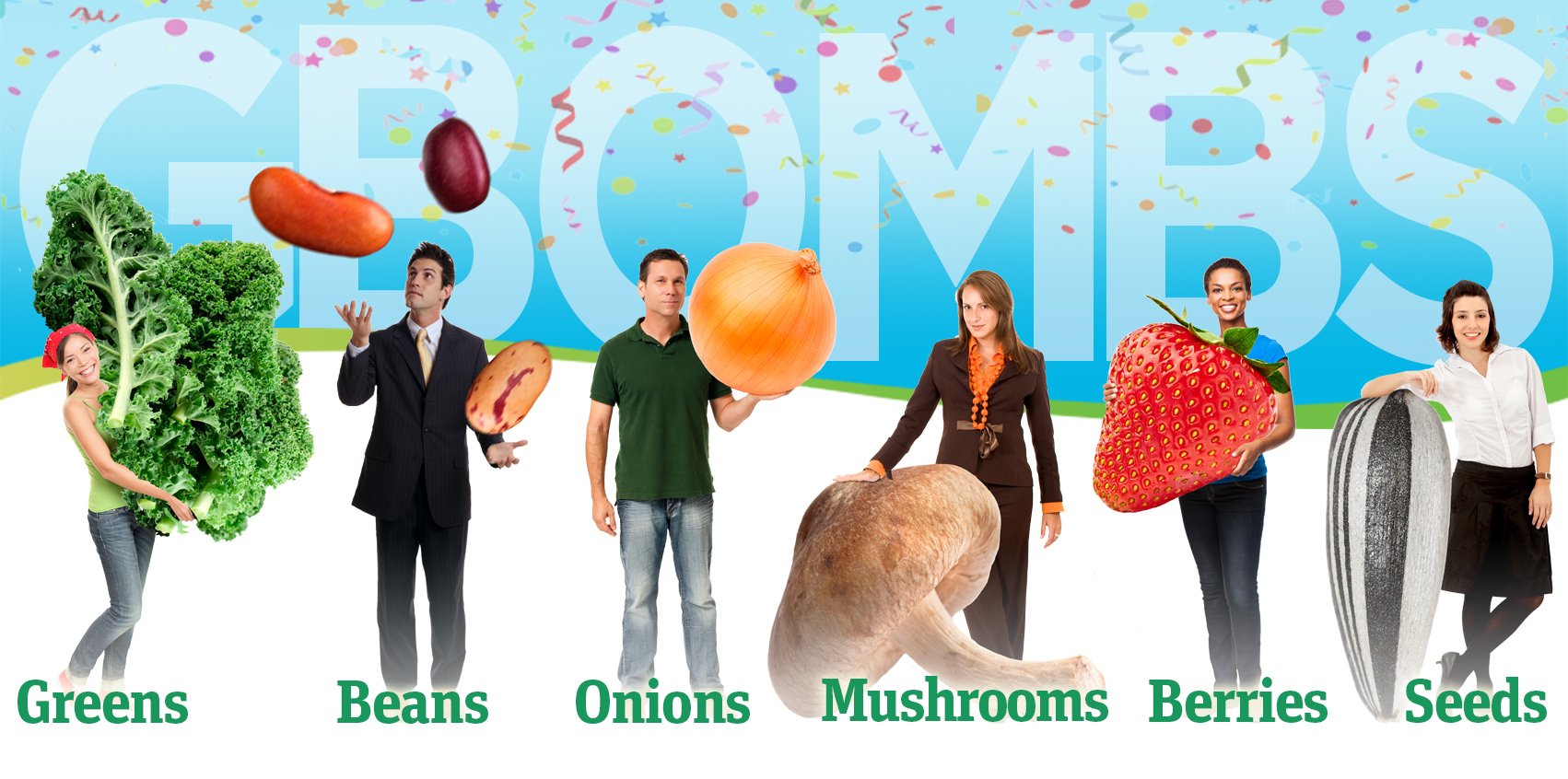Six of the AICR guidelines pertain to what we put into our mouths. These six are highlighted in the infopic above. Five of these guidelines are negatives; they tell us what NOT to do. The only guideline is positive. It says, "Eat A Diet Rich In Whole Grains, Vegetables, Fruits and Beans."
Soybeans: Whole Food Plant-Based doctors unanimously agree that soy foods are health promoting! Various articles on soy are here: Soy, Tofu, Tempeh. For soy and cancer, see
- Breast Cancer & Soy: Over 10 videos by Dr Greger on the subject.
- Prostate Cancer & Soy: A couple of videos by Dr Greger.
Beans, Phytates & Cancer: Phytates & Cancer explains how phytates in beans protect us from cancer.
Beans, Gut Health & Colorectal Cancer: Colon Cancer & WFPB explains how a high fiber diet reduces our risk of developing this cancer. Are beans rich in fiber? Yes!
Beans and Cancer Metastasis: A video by Dr Greger on the subject:
(6 mins) Transcript. Dr Greger's summary: "Which legumes are best at inhibiting the matrix metalloproteinase enzymes that allow cancer to become invasive?"
Dr Fuhrman has coined an acronym: G-BOMBS which stands for Greens, Beans, Onions, Mushrooms, Berries and Seeds:
An excerpt from the above article:
Dr Fuhrman highlights resistant starch, fiber and anti-cancer phytonutrients in beans. Dr Fuhrman also explains why people produce gas: because those not in the habit of consuming beans are low on gut bacteria that consume these beans. But within a few days, those bacteria come into being, in response to our bean intake.
This video talks about resistant starch in beans → SCFA (Short Chain Fatty Acids) → anti-cancer effects and help with diabetes ("The Second Meal Effect").
This video talks about resistant starch in beans → SCFA (Short Chain Fatty Acids) → anti-cancer effects and help with diabetes ("The Second Meal Effect").

 Instagram
Instagram YouTube
YouTube
